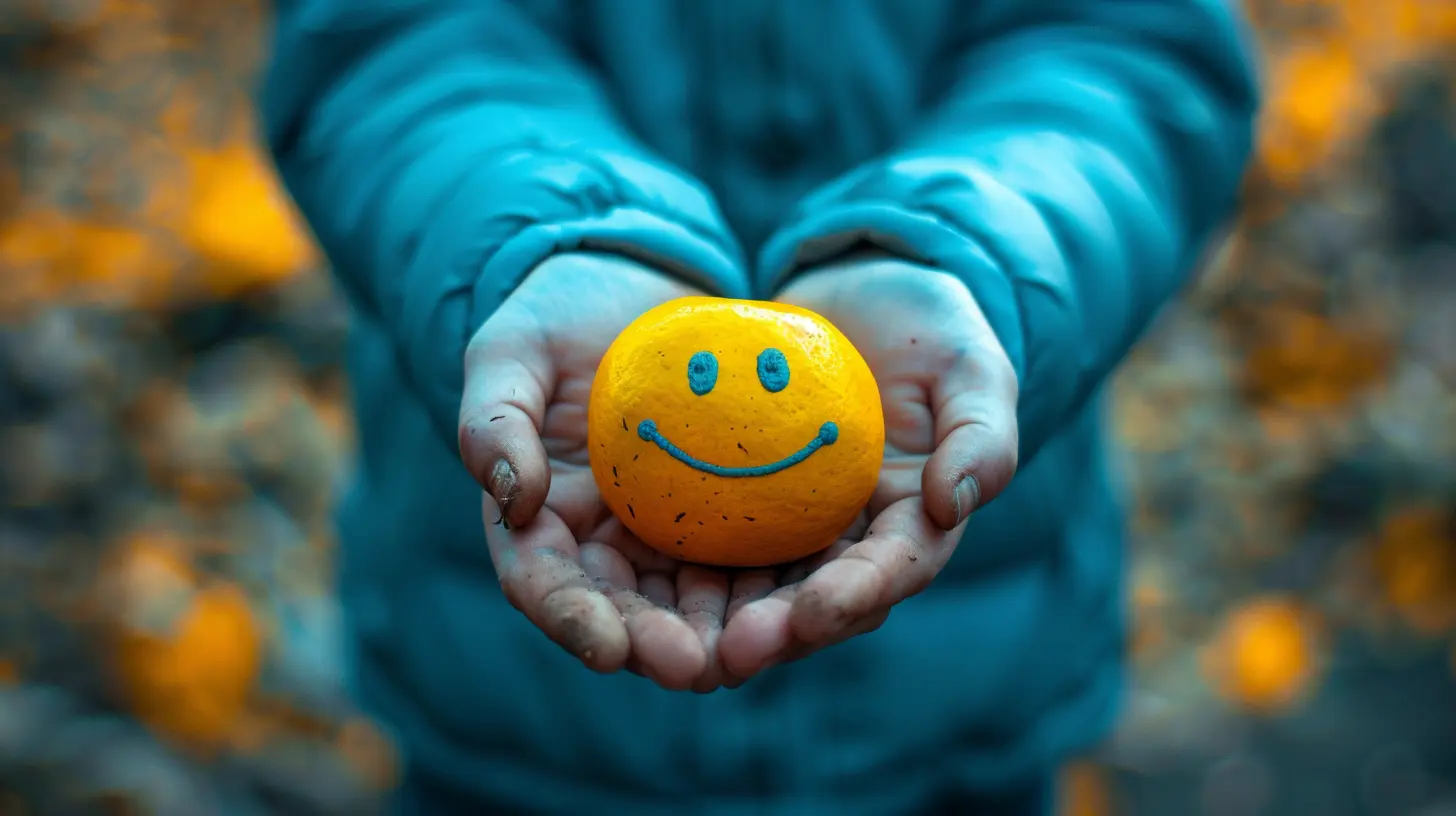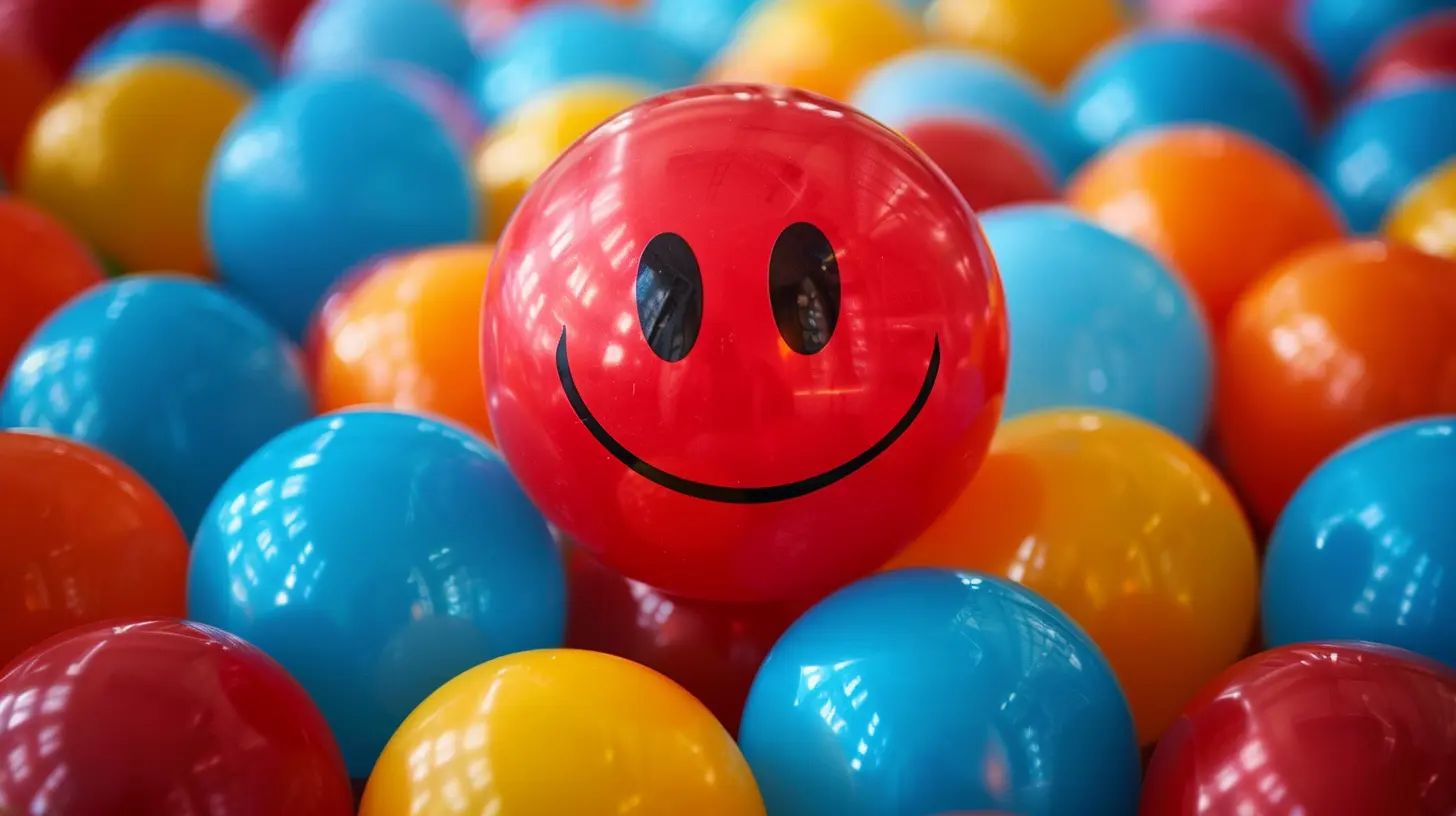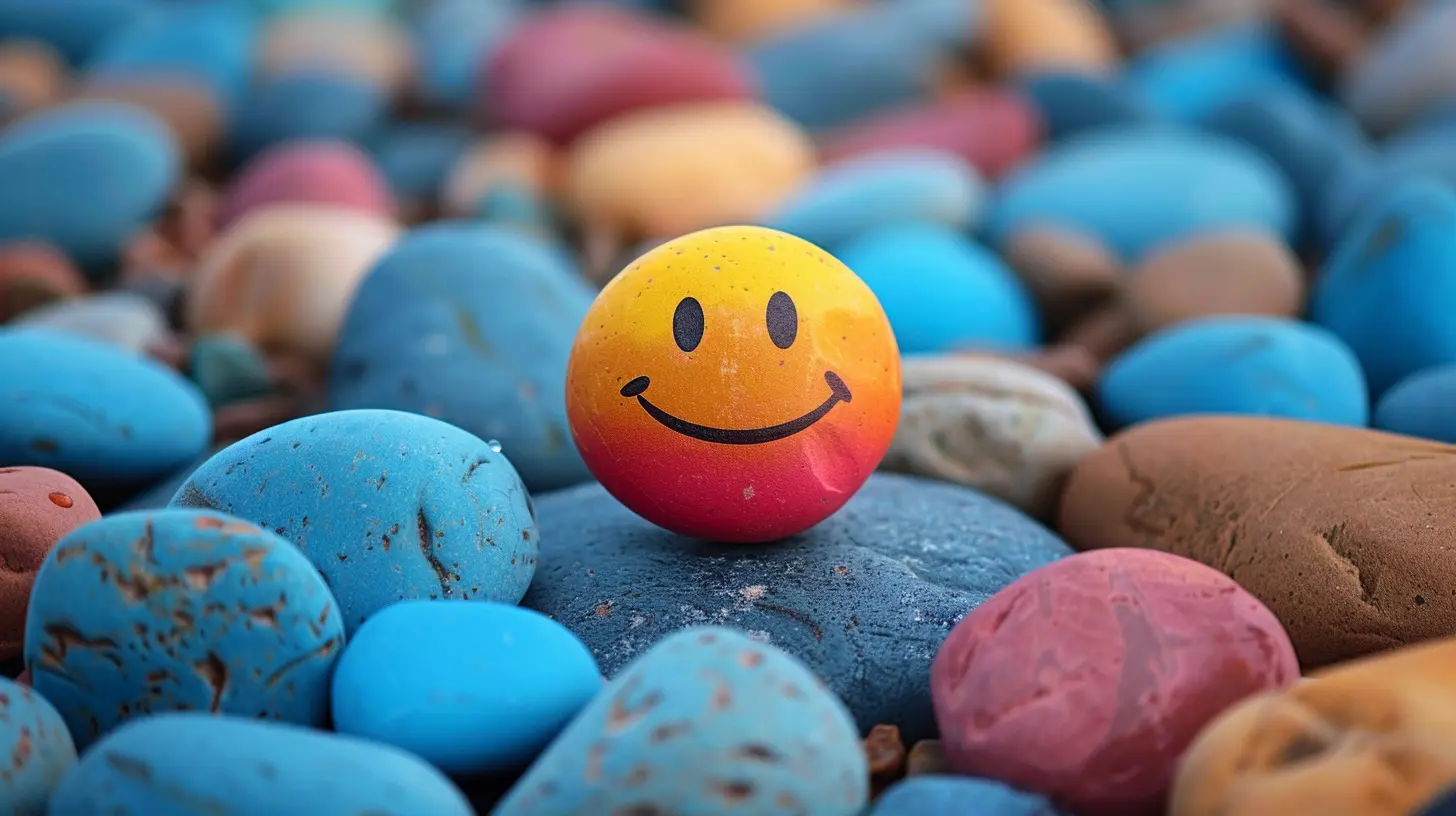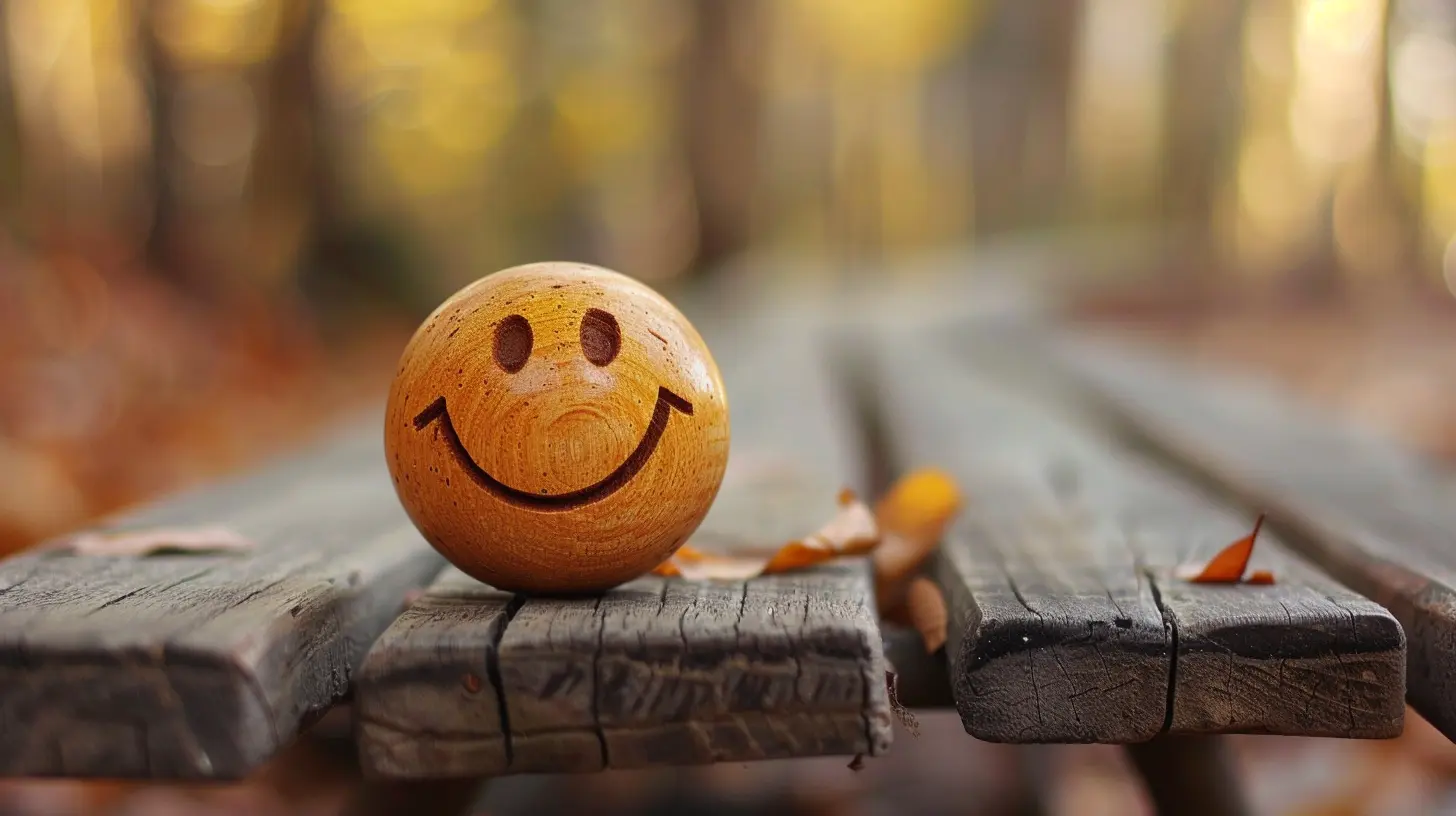Can Happiness Be Contagious? The Science of Emotional Contagion
9 June 2025
You know that one friend who walks into a room and instantly brightens it—like a walking, talking human disco ball of joy? Yeah, them. Ever thought, "Why do I suddenly feel like life’s a musical after they show up?" Well, you’re not imagining it. Welcome to the wonderfully weird world of emotional contagion, where feelings literally catch on like a viral TikTok dance.
But here’s the big question we’re diving into today: Can happiness actually be contagious? Like, can someone’s good mood sneak into your emotional inbox without asking for permission? Buckle up, grab your metaphorical hand sanitizer (because who knows what feelings are floating around), and let’s dig into the science behind this emotional osmosis.
What Is Emotional Contagion? (Spoiler Alert: It’s Not a Zombie Virus… Yet)
So, emotional contagion. Sounds like a term cooked up by a psychologist and a sci-fi writer over coffee, right? But it’s real. Emotional contagion is the phenomenon where people "catch" emotions from others—kind of like catching a cold, but instead of a stuffy nose, you walk away with either warm fuzzies or a bad case of the grumps.This concept dates way back—like, Aristotle-back—where it was observed that people tend to mirror each other’s emotions, expressions, and body language. And now, with brain scans and all our techie toys, science is like, “Yep. Confirmed. You’re basically a mood sponge.”
Happiness: The Social Butterfly of Emotions
Of all the emotions that can spread, happiness is like that overly enthusiastic guy at a party—it’s everywhere. But why is happiness so darn contagious?Well, when we see someone laughing, smiling, or just generally being all sunshine and rainbows, our brains go, “Ooooh, that looks fun! I want in!” And boom—our mirror neurons (yes, they’re a thing) fire up. These little guys in our brain help us mimic the behavior we observe, which is why watching someone laugh can trigger your own chuckles—even if you have no idea what the joke was.
Ever heard of the term "empathic joy"? It's basically the emotional equivalent of FOMO, but in a good way. Seeing someone else happy can make us happy, just because we’re part of the same species and our brains love a good group hug.
The Science Behind the Smile
Let’s nerd out for a sec.When someone’s happy, it’s not just their face doing the heavy lifting. Their body language, tone of voice, pace of speech—it all changes. And we pick up on that. A happy person usually shows it through open gestures, sparkling eyes, and infectious laughter. Think of them as dopamine delivery drones.
Studies using fMRI (basically, brain selfies) have shown that when we see someone smiling, the same areas in our brain light up as if we were the ones smiling. It’s a kind of mental monkey-see-monkey-do magic.
And hormones? Oh, they’re throwing a party too. Oxytocin (a.k.a. the love drug), serotonin (mood stabilizer extraordinaire), and dopamine (your brain’s favorite bribe) all get involved to make sure you’re feeling those good vibes. So yes, scientifically speaking, your coworker’s good mood can literally mess with your brain chemistry—in a good way.
Social Media: The Double-Edged Sword of Digital Happiness
Okay, so happiness is contagious IRL—but what about online?Ever scroll through Instagram and suddenly feel lighter just seeing someone post about their cute dog, delicious meal, or clumsy toddler? That’s emotional contagion going digital, baby. Social media amplifies emotions like a megaphone in a library. Positive posts can uplift millions with a click. But remember, the reverse is also true (more on that gloom-fest later).
In a 2014 study, Facebook tweaked people's newsfeeds (without asking... shady, right?) to show more positive or negative posts and then watched what happened. Surprise! People exposed to more positive content ended up posting happier updates themselves. So yes, even through the cold glow of your screen, happiness can spread like glitter in a preschool.
Happiness by Association: Your Tribe Matters
You know the old saying “You are the average of the five people you spend the most time with”? Turns out, that’s not just a Pinterest quote—it’s kinda backed by science.Your social circle has a massive influence on your mood. If your friends are generally optimistic, cheerful, and bursting with LOLs, chances are, you're riding that wave too. Yale researchers even found that happiness can ripple through social networks up to three degrees of separation. Which means—brace yourself—your friend’s friend’s friend could be messing with your mood.
That’s some Inception-level emotional layering.
The Flip Side: When Sadness Crashes the Party
Alright, not to rain on your serotonin parade, but emotional contagion isn’t exclusive to happy vibes. Negative emotions are just as eager to jump ship from other people to you. Anger, sadness, anxiety—these emotions love a good host, too.Ever walk into a room and instantly feel the tension so thick you could spread it on toast? Yeah, that’s your brain picking up on negative emotional cues—because as much as we love good vibes, our brains are wired for survival first. Spotting a bad mood may have helped our ancestors dodge tribal drama (or actual danger), so negativity sometimes hits harder—and sticks longer.
So, yes. Happiness is contagious. But so is misery. Choose your emotional exposure wisely.
Can You Build Your Own Emotional Immune System?
Good news: Emotional contagion doesn’t mean you’re doomed to feel whatever everyone else is feeling. You’re not an emotional puppet.Here’s how to strengthen your emotional immune system:
1. Be Aware of Emotional Transference
Just like you wouldn’t eat something from a stranger's fork (ew), don’t mindlessly absorb someone else’s mood. Recognize what’s yours and what’s secondhand.2. Curate Your Circle
Surround yourself with emotionally intelligent, positive people. It’s like choosing your own personal cheerleading squad, minus the pom-poms.3. Practice Mindfulness
No, you don’t have to sit cross-legged on a mountain. Just check in with yourself during the day. Are you carrying someone else’s emotional baggage? Toss it.4. Play Mood Music
Literally. Create playlists that lift you up. Music is one of the fastest ways to hack your mood and block out ambient emotional static.5. Spread Your Own Sunshine
Be the source of good vibes. Smile, compliment people, laugh out loud—even if you're faking it at first. Turns out, fake it can make it—your brain doesn’t know the difference, and soon you might not either.Why This Matters More Than Ever
We live in emotionally saturated times. Between news media, memes, social feeds, and actual humans (remember those?), we’re constantly soaking in vibes—good and bad. Understanding emotional contagion isn’t just interesting; it’s essential for emotional survival.Being aware of how much we're influenced by other people’s moods can help us take control of our own emotional thermostat. Instead of being a mood sponge, aim to be a mood thermostat—set the tone for those around you.
Because if you can make happiness go viral in your own little corner of the world? That’s pretty powerful.
Final Thoughts: So, Is Happiness Contagious?
Absolutely. Positively. Scientifically. Hilariously. YES.Happiness is as contagious as laughter in a quiet library (which, by the way, is hilarious). Our brains are wired to mirror the emotions of others, our hormones are just waiting for a reason to flood us with joy, and social contagiousness isn’t stopping at the sneeze—emotions are fair game too.
So next time you’re tempted to roll your eyes at your chipper coworker or your perpetually-peppy barista, maybe let a little of that joy rub off on you. Worst-case scenario? You smile for no reason. Best-case? You start a ripple of happiness that outshines your morning coffee.
And hey, wouldn’t the world be a better place if we all started treating happiness like the flu—sharing it with reckless abandon?
all images in this post were generated using AI tools
Category:
Psychology Of HappinessAuthor:

Alexandra Butler
Discussion
rate this article
2 comments
Elowis Estes
Absolutely! Happiness is a powerful force that can spread like wildfire. As we share positivity and joy with others, we create a ripple effect that can transform environments and relationships. Embrace the science of emotional contagion—your happiness can inspire those around you!
June 17, 2025 at 3:16 PM

Alexandra Butler
Thank you for your insightful comment! I completely agree—happiness truly has the power to inspire and transform our surroundings. Let's keep spreading that positivity!
Kristy Benson
Great insights! Happiness truly spreads joyfully among us!
June 11, 2025 at 2:47 AM

Alexandra Butler
Thank you! I'm glad you found it insightful—happiness really does have a powerful ripple effect!


